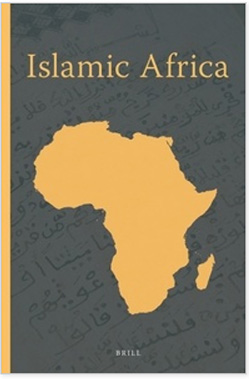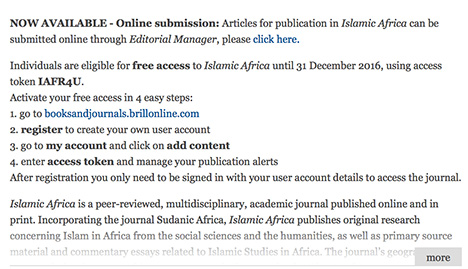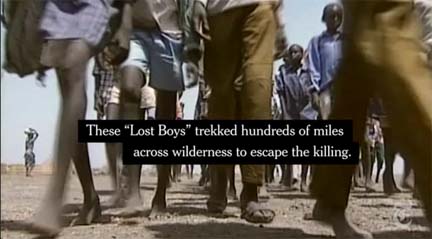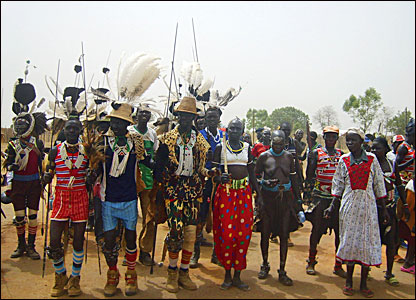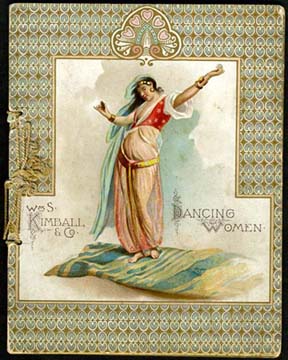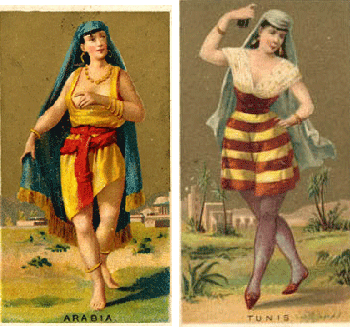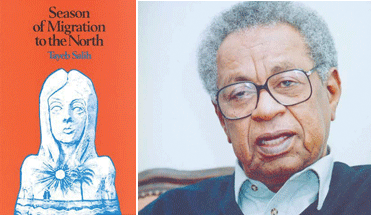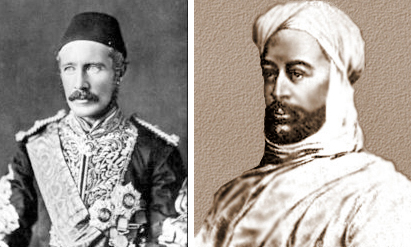
General Charles Gordon, left; Muhammad Ahmad, the Sudanese mahdi, right
The current crisis in Mali, which has now spilled over into neighboring Algeria, is the latest outbreak of mahdi madness on the African continent. In Islamic eschatology, the mahdi is a savior of the Muslim community near the time of the apocalypse. The British colonial empire faced several mad mullahs when they tried to rule Sudan. One such infamous mahdi was Muhammad Ahmad, who proclaimed himself the leader of the Muslims against the Turkish oppressors in the 1870s. On January 26, 1885 the Mahdists following Abdullah Taashi took control of Khartoum, slaughtering the entire British garrison, including General Charles Gordon, before a relief force could reach the besieged city. These were the days in which a mahdi could inspire an army, over 50,000 men in the case of the force that overran Khartoum. In 1898 Lord Kitchener led a British invasion force of over 8,000 men assisted by 17,600 Sudanese and Egyptian troops. The British gunboat diplomacy resulted in a resounding defeat for the Mahdists at the Battle of Omdurman. Kitchener lost 47 men with 340 wounded, while the the Mahdists suffered 9,700 killed, 13,000 wounded, and 5,000 captured.
The Sudanese mahdi and the mad mullahs the British encountered in 19th century Afghanistan were not pietist reformers, but leaders of jihad against the hated occupier, whether fellow Muslim Ottoman Turks or infidel Europeans. The current crisis in Mali is an echo of past mahdis, but with a modern twist. The twist is how we now define a never-ending war on terrorism. Western views of the entire region entrapped by al-Qaeda confuse the situation on the ground. Continue reading Mahdi madness comes to Mali →
